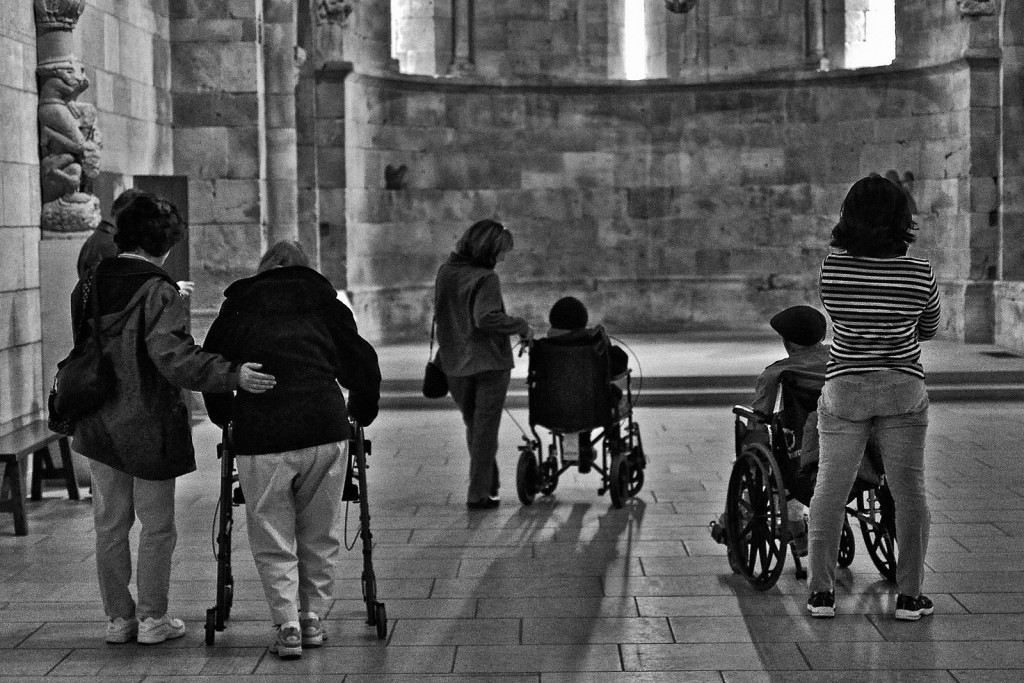For aging adults to maintain good psychological health, it is important to promote awareness about senior-focused mental healthcare. Isolation, as well as cognitive and depressive problems, are among some of the challenges facing the elderly. This article highlights barriers encountered when seeking help from a mental health specialist, and provides practical strategies, interventions, and resources to enhance the quality of life for seniors.
Why is mental health crucial for overall well-being and quality of life in later years?
Significant changes during senior years may affect one’s mental and emotional well-being. Seniors who have good mental health can stay socially connected and take part in enjoyable activities that add value to their lives, which helps them cope better when faced with life’s challenges.
However, when senior mental health disorders develop, it can result in diminished faculties, a decreased ability to heal from physical illnesses, and an increased mortality rate. Taking care of mental health concerns is essential for providing senior citizens the needed support for an enriched aging experience and bettering their overall well-being.
Why is there an increasing need for specialized mental health services for seniors?
Studies show as much as 20% of seniors experience psychological issues which do not occur naturally during the aging process. This increasing need for senior mental health services is due to several factors.
Age-related changes
Aging brings physiological changes, such as hormonal fluctuations and neurodegenerative processes, which can affect mental well-being. Conditions like depression, anxiety, and sleep disorders become more common in older adults.
Social isolation
Many seniors face social isolation due to factors like retirement, disease, limited mobility, and decreased social networks. This isolation can lead to loneliness, depression, and a decline in overall mental health.
Grief, loss, and navigating life transitions
Seniors often experience significant life transitions, such as the loss of friends, spouses, or independence. Coping with grief and adjusting to these changes can be challenging, requiring specialized support to maintain mental well-being.
Cognitive decline
Age-related cognitive decline, including conditions like dementia and Alzheimer’s disease, can impact mental health. Memory loss, confusion, and changes in cognitive function can lead to frustration, anxiety, and depression.

Stigma and barriers to receiving treatment
Seniors may face stigma and reluctance to seek mental health services due to generational attitudes, cultural beliefs, or misconceptions about aging and mental health. This can prevent them from receiving necessary support.
What are the barriers to mental health services for seniors?
Barriers to seeking mental health services can prevent individuals from accessing the support necessary for their well-being. These obstacles include:
Misconceptions surrounding mental health in older adults
There is a prevailing belief that mental health problems are a normal part of aging or that seeking help for emotional issues is a sign of weakness. Such misconceptions can discourage seniors from seeking the support they need.
Limited accessibility and availability of specialized services
Many areas have a shortage of mental health professionals trained in geriatric care, making it difficult for seniors to access specialized services. This lack of availability can result in long wait times or having to travel long distances for care.
Financial constraints and insurance coverage
The cost of mental health services can be a significant barrier for seniors, especially if they have limited financial resources or inadequate insurance coverage. High out-of-pocket expenses or lack of coverage for mental health services may prevent seniors from getting the help they need.
Transportation and mobility challenges
Seniors who have limited mobility or lack reliable transportation may face difficulties accessing mental health services, particularly if providers are located far from their homes. Mobility challenges can hinder their ability to attend appointments and receive consistent support.
Communication and technology difficulties
Some older adults may have limited digital literacy or access to technology, which can hinder their ability to connect with mental health services provided remotely or through online platforms. Language barriers or hearing and vision impairments can further complicate communication and access to treatment.
What are the solutions and strategies to support seniors’ well-being?
It is essential to create a supportive and inclusive environment that encourages seniors to get the mental health support they so desperately need. Solutions and strategies to support seniors’ well-being include:
Mental health counseling for seniors
Specialized mental health services tailored to the needs of older adults, such as geriatric psychiatry and counseling, can provide comprehensive assessments and evidence-based treatment for mental health conditions commonly experienced by seniors. These services address the unique challenges and considerations associated with aging.
Aging-focused support groups and therapy
Support groups and therapy sessions specifically designed for seniors can create a safe space for sharing experiences, building social connections, and receiving emotional support. Individual and group therapy can be invaluable in addressing major life transitions that are associated with aging.

Teletherapy and online mental health services
Utilizing technology, teletherapy and online mental health services offers convenient access to mental health professionals from the comfort of seniors’ homes. This can be particularly beneficial for those with limited mobility or in remote areas, as it overcomes transportation barriers and expands access to care.
Education and mental health literacy
Increasing mental health literacy among seniors, caregivers, and the community is crucial. Educational programs and resources can help raise awareness about mental health issues, reduce stigma, and promote early detection and intervention for mental health concerns.
By implementing these solutions and strategies, it is possible to promote the mental well-being of seniors, combat isolation, and address their unique needs.
Final thoughts
Providing support and resources for caregivers of seniors is essential, as well as promoting knowledge and fostering a supportive environment. Family members, caregivers, and communities can play a vital role by being attentive and encouraging the need for treatment. By resolving minor problems that most people face daily, such as providing transport facilities, stress levels can be brought down, leading to happier individuals with improved outcomes.
When gone unchecked or ignored, older adults’ mental illness could result in significant ramifications to the affected individual and those close to them. That’s why it’s important to understand how specialized mental health services can help to overcome challenges, so seniors can age with dignity. By addressing barriers and utilizing effective solutions, older adults can prioritize their mental well-being and improve their overall quality of life.
